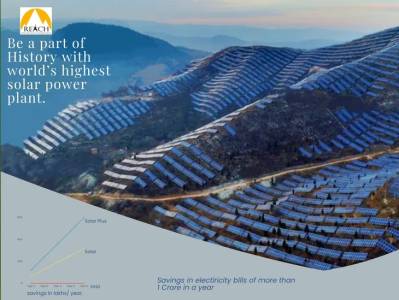
Harness the sun's energy to generate clean, reliable, and cost-effective electricity. Utility-scale solar power plants are large-scale solar photovoltaic (PV) systems designed to provide electricity to the grid, serving homes, businesses, and communities. These installations represent a significant investment in renewable energy infrastructure, offering substantial environmental and economic benefits.
Key Features & Benefits:
Technical Specifications (vary widely depending on project):
Applications:
Environmental Impact:
Investing in utility-scale solar is an investment in a cleaner, more sustainable, and economically vibrant future. Contact us today to learn more about how we can help you develop and implement your utility-scale solar project.